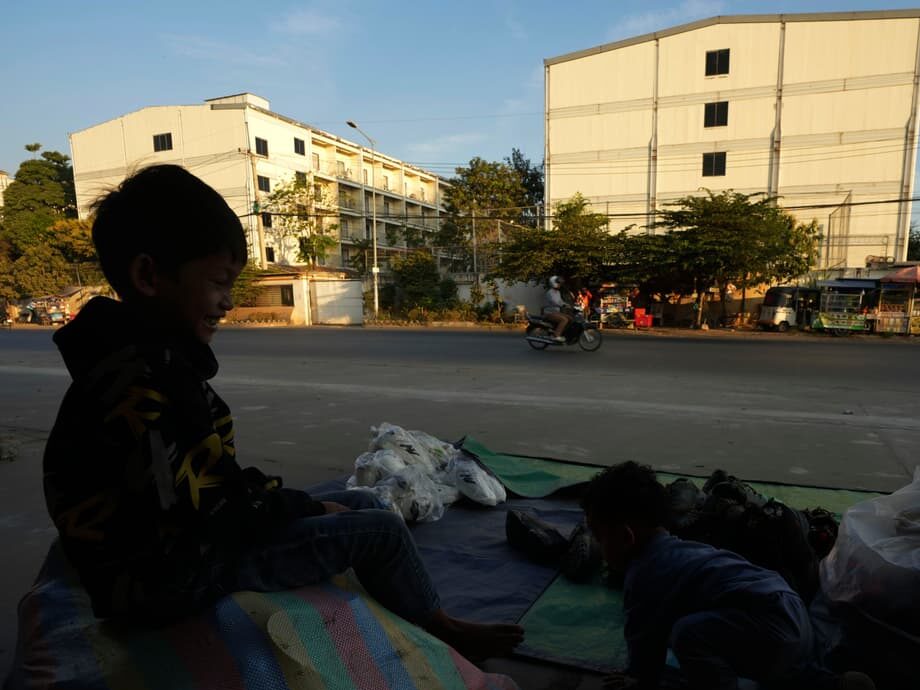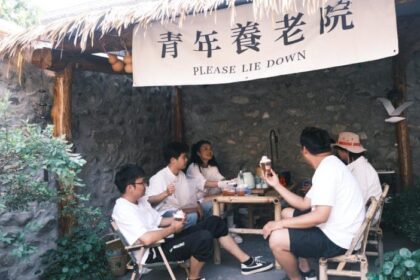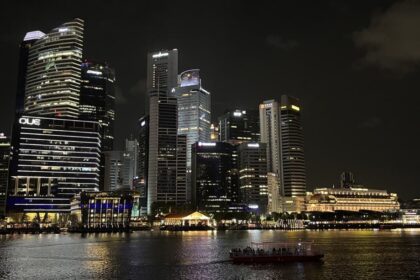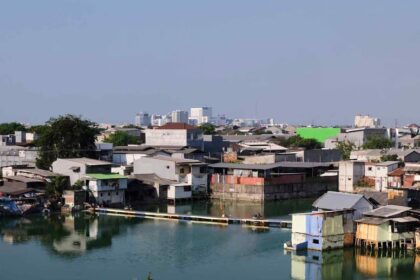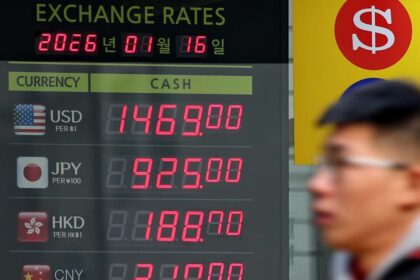What triggered South Koreas emergency travel ban
South Korea has moved to its highest travel alert for certain parts of Cambodia after a surge in abductions, forced labor, and detention linked to online scam compounds that target foreign nationals. The decision follows months of mounting cases and the death of a 22-year-old South Korean student in August, a killing that exposed the brutality of criminal networks operating behind fake job offers. The foreign ministry announced a code black designation for high-risk areas and ordered nationals to leave those zones, while an emergency team of diplomats, police, and intelligence officers arrived in Phnom Penh to coordinate rescues and repatriations.
- What triggered South Koreas emergency travel ban
- Where the ban applies and what it means for travelers
- Inside the scam compounds How the networks operate
- The death that shocked South Korea
- Government response in Seoul Rescue, repatriation, and investigations
- How Cambodia is responding
- A regional and global criminal economy
- What travelers and job seekers should watch for
- What to Know
The travel ban covers Poipet and Bavet, both busy border towns, along with the Bokor Mountain area in Kampot province. These locations have been identified as hubs for fraudulent recruitment and illegal detention. About 60 South Koreans are currently in Cambodian custody following recent raids on scam centers, and the government says roughly 80 others are unaccounted for. A senior delegation led by second vice foreign minister Kim Jina is working with Cambodian authorities on repatriations, including the option of a charter flight. Progress is complicated because some detainees insist on remaining in Cambodia despite the risks and legal scrutiny they may face at home.
Kidnappings of South Koreans in Cambodia have risen quickly this year. Recruiters dangle promises of high salaries and easy work in technology or customer service. After arrival, many victims are confined in guarded compounds and forced to carry out online fraud. Survivors describe beatings, electric shocks, and starvation used to enforce quotas. Some accounts allege that those who can no longer work are sold to other criminal groups, with claims of organs removed in extreme cases. Authorities say these operations draw workers from many countries and target victims around the world.
Where the ban applies and what it means for travelers
The foreign ministry issued a Level 4 code black warning for the Bokor Mountain region, Bavet, and Poipet. A Level 4 warning is the most severe in South Koreas four-tier travel system and requires citizens to leave immediately. The government also raised the alert for Sihanoukville and urged South Koreans there to depart, while elevating the rest of Cambodia from the lowest alert to a higher caution level. Officials warned that travel to, or continued presence in, the banned zones could bring penalties under the Passport Act and related regulations. That message is aimed at stopping new arrivals and reducing the pool of potential victims.
How to comply and seek help
South Koreans already in Cambodia are advised to avoid border regions named in the ban and to contact the nearest embassy or consulate for a safe exit plan. Anyone who accepted a suspicious job offer should keep personal documents secure, avoid meeting recruiters in isolated locations, and inform family or authorities of their movements. Travelers are urged to verify any overseas employment through reputable channels, confirm visas and contracts in advance, and stay away from compounds or workplaces that will not allow inspections or open communication with relatives.
Inside the scam compounds How the networks operate
Many recruits encounter these schemes through messaging apps and online job boards where offers look legitimate. After arrival, passports and phones are often seized. Workers are told they owe a recruitment debt that must be repaid through labor. The job shifts quickly to cyber fraud. One common model is known as pig butchering, a long-con in which scammers build trust with victims over days or weeks before pushing them to invest in fake trading or cryptocurrency platforms. Teams inside the compounds are trained to respond in multiple languages and to tailor scripts for targets in different countries.
Conditions inside these sites are harsh. Compounds sit behind walls and barbed fencing, with guards preventing escape. People who miss a quota or refuse to work risk beatings, electric shocks, and confinement. Survivors report being moved across sites to frustrate investigations, and some say their identities were used to open bank accounts. Victims come from across Asia, including Vietnam, Indonesia, Malaysia, and China. South Koreans say they were picked for their ability to access legitimate bank accounts and for their language skills that help the fraud teams target victims in a developed market.
A rescued South Korean described the physical collapse after prolonged beatings.
‘I do not know if I fainted or just collapsed from lack of strength, but I could not even scream.’
Officials estimate that around 1,000 South Koreans have become entangled in Cambodias scam industry, which involves roughly 200,000 people of various nationalities. The scale points to an industrialized operation that shifts locations and tactics as police increase pressure. Criminal bosses reportedly use hardened networks, encrypted communications, and even satellite connections in remote areas to keep the fraud engines running.
The death that shocked South Korea
The case that galvanized public anger in South Korea involved a university student who traveled to Cambodia over the summer break. His family later received a ransom demand, and weeks after contact was lost, his body was discovered near Bokor Mountain. An autopsy showed evidence of severe torture and injuries consistent with prolonged abuse. Cambodian investigators charged three Chinese nationals with murder and online fraud in connection with the killing. The case underscored how quickly a fake job offer can turn into detention, extortion, and deadly violence.
South Koreas national security adviser, Wi Sung lac, said repatriation is the top priority while stressing that those returning will be reviewed for potential crimes committed under coercion or by choice.
‘We are making efforts to ensure repatriation by this weekend.’
During meetings in Phnom Penh, Cambodian Prime Minister Hun Manet expressed condolences and promised stronger action against the networks behind the killing and other abuses targeting foreigners.
‘I express deep regret over the death of a South Korean national in Cambodia and will intensify efforts to protect your citizens and arrest those responsible.’
Government response in Seoul Rescue, repatriation, and investigations
Seoul has activated an interagency task force that includes the foreign ministry, the justice ministry, the National Police Agency, and the National Intelligence Service. Second vice foreign minister Kim Jina is leading a team in Cambodia to work with local authorities on immediate protection for victims, consular access, and the logistics of returning detainees to Korea. Officials are preparing to use charter flights if commercial routes cannot handle the number of repatriations within the required timeframe. The government says returnees will be assessed case by case, with support for victims and investigations for those suspected of joining the crimes willingly.
Early repatriations and legal process
Police say initial repatriations have begun, with a small group of detainees arriving in Seoul for questioning and medical checks. One suspect on an Interpol notice was among the first to return. Airlines limit how many escorted suspects can board a flight, so a dedicated plane is under review to move larger groups quickly and safely. Officials are also responding to families of missing Koreans, who have pressed for faster action as reports of torture and extortion pile up. Authorities say they initially received hundreds of missing-person reports this year and that after verification the list of those unaccounted for stands at roughly 80.
How Cambodia is responding
Prime Minister Hun Manet leads a national commission to combat online scams and has pledged more raids, arrests, and cooperation with foreign partners. Cambodian officials guided the visiting Korean delegation through one compound site and discussed a bilateral task force to coordinate cases and share intelligence. Cambodian leaders have voiced concern about the impact of the travel warning on investment and tourism but said they understand why South Korea raised the alert. Phnom Penh says it will prioritize locating missing South Koreans and expedite repatriations where possible, while reminding partners that crimes committed on Cambodian soil remain under its jurisdiction.
A regional and global criminal economy
The operations in Cambodia are part of a wider pattern across Southeast Asia. After pressure in parts of the Golden Triangle region, many fraud centers shifted to border towns and coastal hubs where corrupt officials are harder to root out and cross-border movement is easier. The frauds range from romance and crypto schemes to fake investment platforms and online sales scams. Proceeds move through complex chains of accounts and cryptocurrency, which makes tracing funds difficult. International pressure is growing. The United States and other governments have announced asset seizures and sanctions tied to forced-labor fraud centers, and the United Nations has assessed that these networks pull in billions of dollars a year. Rights groups report dozens of compounds in Cambodia where forced labor, detention, and abuse occur on a large scale, claims that Cambodian authorities say are overstated. What is beyond dispute is the harm carried across borders. Victims hail from many countries, and the scams target people worldwide. Recruiters scour social media and job sites for young workers who need cash fast. They promise roles that sound legitimate, such as customer support or IT, then switch to illegal tasks once recruits are isolated and under guard. The border cities of Poipet and Bavet, and the Bokor area, have become near synonyms for that risk.
What travelers and job seekers should watch for
Scam recruiters thrive when candidates feel rushed, isolated, or uncertain. A few practical steps can reduce the chance of being trapped in a scheme and can help friends or family intervene early.
- Be wary of jobs that demand immediate relocation, refuse to share a full contract, or guarantee very high pay for simple tasks.
- Never hand over your passport to a recruiter or employer. Keep copies of your identification in a secure place.
- Verify employers through official business registries and by speaking with current staff. Ask for a video meeting with a manager on an official company account.
- Check South Koreas latest travel advisories before accepting any work abroad, and avoid restricted zones completely.
- Do not agree to open bank accounts, move money, or share online banking credentials for someone else.
- Refuse any request to pay a fee to secure a job. Legitimate employers do not charge applicants.
- Share your itinerary with family, enable location sharing with someone you trust, and schedule regular check-ins.
- At the first sign of confiscated documents, confinement, or threats, contact your embassy or local police and seek a safe exit.
What to Know
- South Korea issued a Level 4 code black travel ban for Poipet, Bavet, and the Bokor Mountain area in Cambodia.
- The move follows the torture killing of a 22-year-old South Korean student and a rise in scam-linked kidnappings.
- About 60 South Koreans are detained in Cambodia after raids on scam centers, with roughly 80 still unaccounted for.
- Seouls emergency team in Phnom Penh is coordinating rescues and planning repatriations, including a possible charter flight.
- Returnees will face case-by-case reviews, with support for victims and investigations for suspected participation in crimes.
- Cambodian Prime Minister Hun Manet expressed regret, pledged stronger crackdowns, and discussed a bilateral task force.
- Authorities estimate roughly 1,000 South Koreans are caught up in Cambodias scam sector, part of a regional network of about 200,000 workers.
- Rights groups cite widespread forced labor and abuse inside compounds, while Cambodian officials dispute the scale of those claims.
- International pressure is rising, with asset seizures and sanctions against networks tied to forced-labor scam operations.
- South Korea raised alerts nationwide in Cambodia and warned that violating the ban can bring penalties under the Passport Act.


